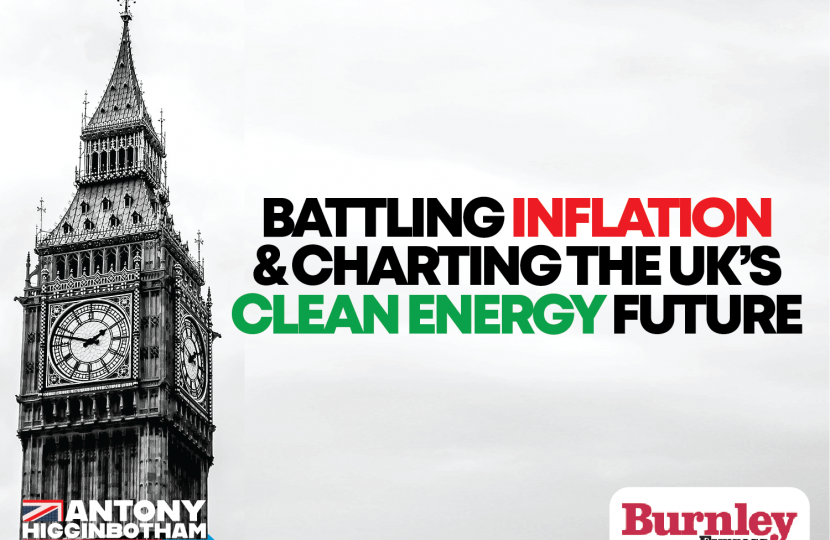
Some big news this week.
The first was on inflation where, despite the expectations of forecasts and experts, we saw a further fall to 6.8 per cent (down from a high of 11.1 per cent a year ago). This was the third decrease in a row and would likely have been sharper had the cost of oil not increased.
However, even at this level it is still too high and impacting all of us. The Prime Minister is clear that he and the Chancellor are responsible for working to see it come down further by the end of this year.
The second was a major announcement by the Prime Minister on how our country continues its path to a cleaner future. Where energy security goes together with home-grown renewable power, and where we leave behind expensive and polluting fossil fuels.
The government's new approach is pragmatic and realistic, shaped by the concerns I’ve heard from residents across Burnley & Padiham. It will ensure families across our area are not faced with unacceptable costs, which are not necessary, whilst also keeping us on the same path to that cleaner, cheaper, energy future we need to see.
It's not about imposing burdens but about creating a balanced, democratic dialogue. Because reaching Net Zero by 2050 can't be a unilateral, top-down decision. It must be a national endeavour, one that respects the lived experiences and practical concerns of every resident.
As a result of the change, the ban on new petrol and diesel cars will be moved from 2030 to 2035. This brings us into line with the Australia, Canada, the EU, and several US states. It means that we do not penalise UK car makers compared to their global equivalents, ensuring supply chains can stay resilient. Grants for heat pumps are also being increased, along with a commitment that for those where a heat pump doesn’t make sense, a permanent exemption is in place.
And on energy generation, oil and gas licences will continue to be issued, ground-breaking Carbon Capture and Storage will be developed, the energy grid will be upgraded, and the rollout of new nuclear will be prioritised.
Our decarbonisation targets remain amongst the most ambitious in the world (68% down by 2030, compared to 45% Australia, 55% EU, 40% USA). This new approach will allow us to hit those whilst also protecting households. And with full debates in Parliament on how we reach those targets, we will have a democratic lock in place.

